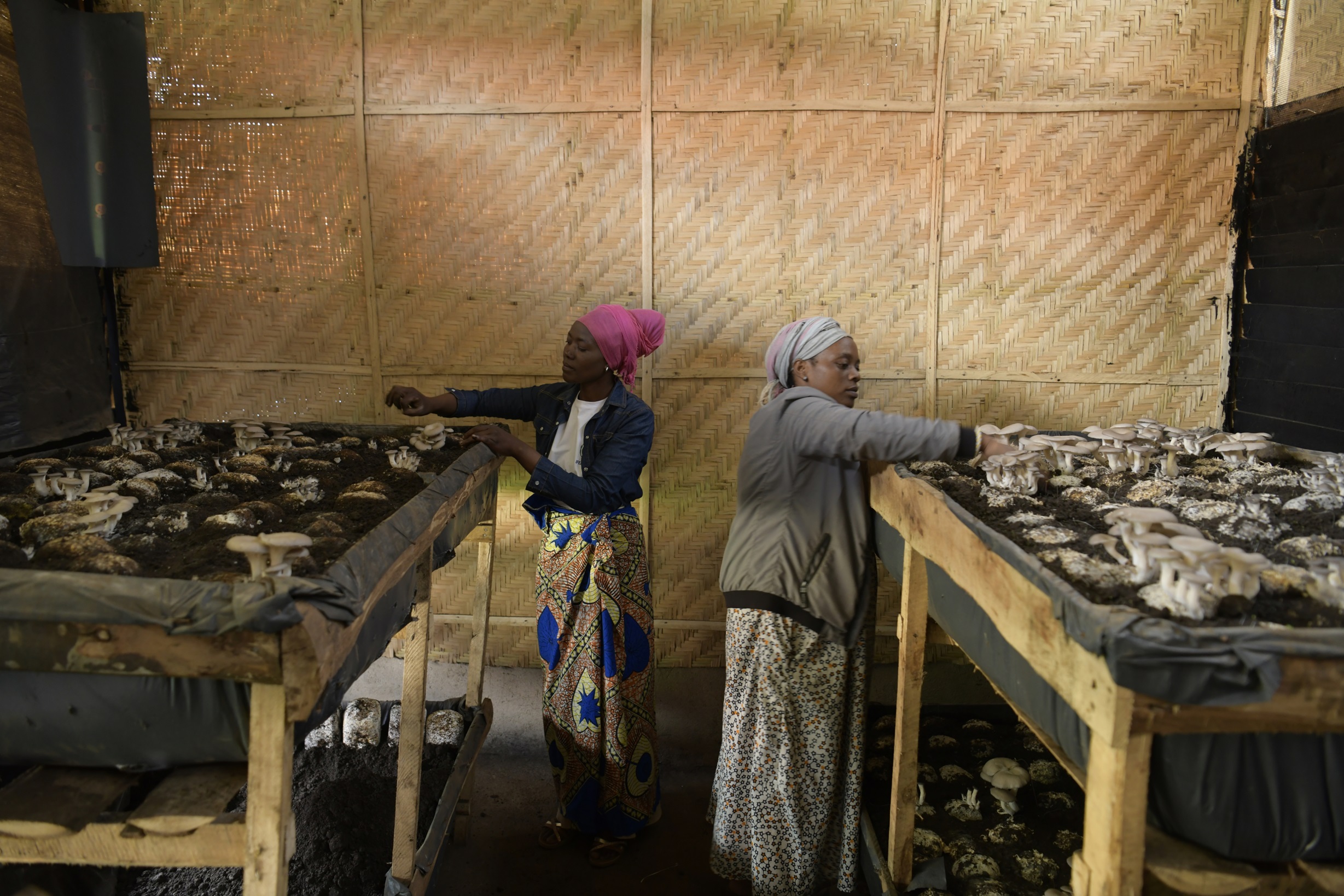MNB Ltd
“In our company, we collect waste—coffee waste and agricultural waste. We make mushroom seed, we grow mushrooms. After growing mushrooms, we have mushroom waste. We use mushroom waste to make compost, we use compost in coffee growing. After growing coffee, we collect coffee waste to make mushroom seed again as a cycle. It’s what we call circular economy in the context of Rwanda,” explains Emmanuel, MNB Ltd’s Technical Advisor.
MNB Ltd was established in 2012 to develop practical and sustainable solutions to hunger and malnutrition in Rwanda, specifically addressing the needs of coffee farmers in the Rubavu District. The climate and terrain of western Rwanda are well-suited for high-quality coffee cultivation, which serves as a key cash crop. However, with only one annual coffee harvest, farmers, their families, and the surrounding communities struggled with a single income stream that could not meet year-round expenses, including food and school fees.
The company’s founder, Zilipa Nyirabyago, sought a solution that would diversify income sources for the community. Her vision was to generate additional income and employment by making use of the community’s existing resources.
Coffee pulp, previously discarded as waste, became the answer. It was available in abundance and had a longer shelf life than many agricultural byproducts. MNB began using it to create mushroom substrates. Other mushroom growers in the region have relied heavily on imported cotton husks from Tanzania and Burundi, but MNB significantly reduced that dependency by utilizing local coffee waste.
As wholesale producers of fresh mushrooms, MNB serves the local market and exports to the Democratic Republic of Congo (DRC), thanks to their proximity to the border. While mushroom cultivation has improved nutrition and created jobs in the region, the short shelf life of fresh mushrooms poses challenges, especially in warm climates. To address this, MNB has started processing mushrooms to retain their nutritional value by drying them, along with cassava, to extend their longevity. Reducing waste in the value chain not only increases profit margins but also improves access to mushrooms for consumers.
MNB operates a zero-waste mushroom value chain, where waste is composted, reused, or recycled. Organic compost produced through this process is sold to local farmers. Plastic bags, essential for keeping the mushroom substrate dry during seed formation, are repurposed for growing coffee seedlings, supporting circular practices and further reducing waste.
Inspired by CIRF training, MNB Ltd has identified other potential circular practices, including the development of agro-tourism. The company’s main site on the scenic shores of Lake Kivu offers an opportunity to showcase their circular practices and educate visitors about sustainable farming.
By continuing to train local farmers, sell compost, and provide quality coffee seedlings, MNB promotes waste as a valuable resource and potential income stream. The company is committed to constant innovation, seeking new ways to benefit its business, the community, and the country.
“Step by step, we are only beginning, but next year, 10 years, 5 years from now, we will be in a good position. Because everything in Rwanda—what we used to call waste—will become a product. Everything—product. Waste—product. Waste—product. Product we use to sell, product to generate money,” says Emmanuel, MNB Ltd’s Technical Advisor.

